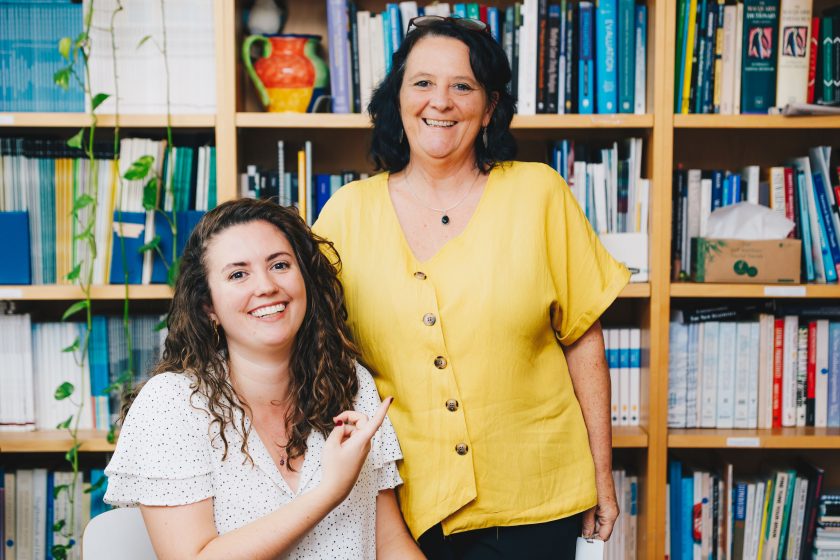
INTERN TO MANAGER: WHAT I LEARNT AT ARTD
It is with very mixed emotions that I write this blog. It marks my final blog for ARTD, at least for a little while, as I set off on a new path at the Workplace Gender Equality Agency next week. From data entry intern at 18 years old to evaluation Manager, my eight years here have been extremely formative.
It seems that most of us fall unexpectedly into evaluation. That was certainly the case for me. And given the recent discussion about what it means to be an evaluator, particularly an ‘early career’ evaluator, I thought I’d share my story.
My journey
I had just finished my HSC in 2012, when my mum, (and ARTD Senior Director) Sue Leahy, asked me to come into our Kent Street office to enter some survey data for an evaluation of a South Australian education program. As I entered the data, I instinctively made note of the most common responses that were emerging. Little did I know I was starting my journey as a qualitative analyst.
I later supported a range of other projects. I also discovered a knack for proofing and editing, which exposed me to the breadth of work being done across the company and the many different styles of writing. I upskilled in interviewing and facilitation, and increasingly became more client-facing. From there, I began managing more complex evaluation and research projects, completing data synthesis and report writing, and coaching and mentoring junior staff.
Of course, it wasn’t all work and no play. In 2015 I spent six months on university exchange in Madrid. Then in 2017, I spent six months interning at the International Institute of Democracy and Electoral Assistance in Stockholm. But, if my fastidious system for filing emails serves me well, I’ve worked on just under 100 projects in my time here!
All of my favourite projects involved getting out in the field to talk to program staff and clients and hear their stories. From video interviews with people living with dementia for the Dementia Friendly Communities program, to a roadshow of rugby clubs across NSW to discuss the Tackling Violence program, I love that evaluation gives you the opportunity to ensure people and communities have a voice in the services that affect their lives.
What did I learn?
Contrary to most of the consulting meme pages you can find on Instagram—it’s a rabbit hole, watch out—my time at ARTD has been both intellectually stimulating and emotionally rewarding. It taught me a lot about what it takes to be a successful evaluator.
- It’s all about people and relationships. Consulting involves both technical and human (or ‘soft’) skills. The latter can be a little harder to teach. Be it your client, the research participants, or your team, building trust and rapport is absolutely key to a successful project. You can bring all the expertise in the world to the table, but if you don’t pay respect and listen carefully, you’re unlikely to deliver what is really needed. Building positive relationships ensures that the right people are engaged, empowered and feel a shared sense of ownership over the process and the product. Interviewing people in the field is also a humbling reminder of the expertise that people with lived experience hold.
- There are many forms of evidence. As I’ve written about before, conventional western-scientific and positivist approaches to knowledge building have meant quantitative and experimental methods are often held as the “gold standard” of research. While appropriate in some contexts, these approaches can neglect other forms of evidence, such as traditional knowledge and the expertise of those impacted by and implementing change. As governments continue expecting service providers to collect outcomes data, it is critical that a range of forms of evidence are recognised as valid and rigorous.
- Think big and small. In my experience, a skilled evaluator is simultaneously across the specific details of a project, as well as where it fits in the bigger scheme of things. You need a clear project plan and a keen attention to detail to track all the moving parts. At the same time, you can’t lose sight of the purpose. It’s important to understand the context in which the program (and evaluation) are operating for the work to be useful.
- Make it useful. Despite significant expenditure on evaluation, we know that reports often go unused. They are too complex, too long, or have too much jargon. To make evaluation used and useful, it’s critical that you know your audience, reflect on findings and embed learnings along the way. Use clear and concise structures and language. Translating complex data, concepts and research into content that is useful and targeted is a big part of the job.
- The industry is diverse and evolving. From embedding Aboriginal ways of knowing and empowering people with lived experience, to considering the impact of AI and climate change, the industry is constantly evolving and adapting. This means there is room to find your niche or forge a path that reflects your interests and values. For me, this meant unpacking the benefits and burdens of evaluation in the community development context. I explored approaches that were better suited to NGOs than the traditional ones, like development and empowerment evaluation. My next venture? I’m currently reading Feminist Evaluation and Research and am keen to take this thinking with me as I dive more deeply into the gender equality space.
Looking back, I see that I truly ‘grew up’ at ARTD and it’s going to be very hard to say goodbye. All I can say is thank you to all the wonderful people I’ve worked with along the way for all their time, wisdom and support—special shout out to my mum, Simon and Jade for many years of support and mentoring. Let’s not be strangers!




